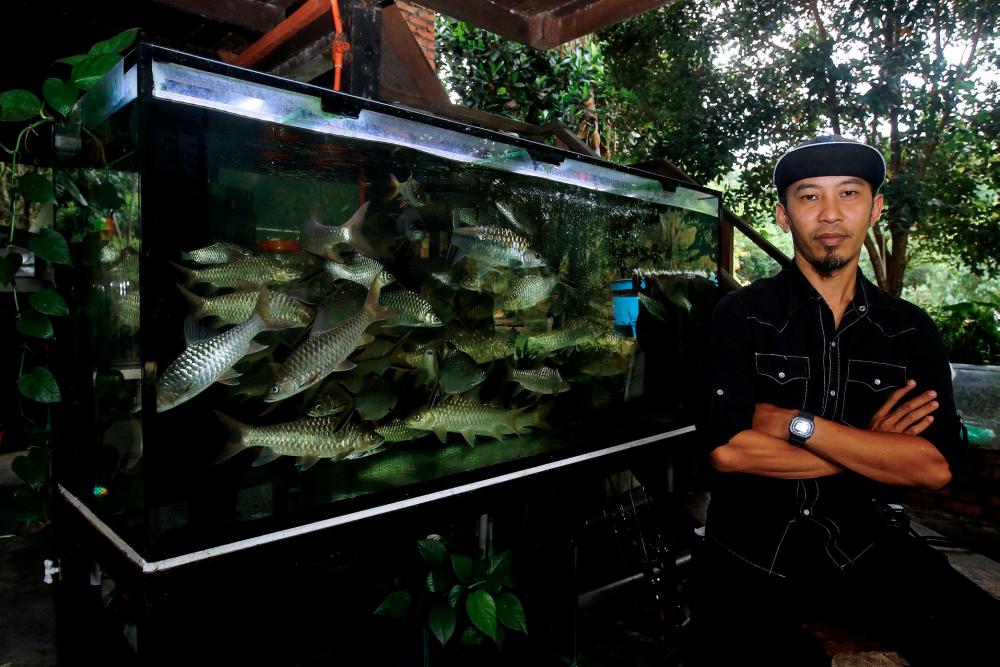JELEBU: About six years ago, Zulfadly Harun’s(pix) keen interest in kelah farming, due to its great potential in the local market, prompted him to quit his broadcasting career to venture into the breeding of the ‘king of the river’.
The bold action taken by 41-year-old Zulfadly paid off when he became one of the three young people in the state to successfully breed and hatch the kelah fish, thus becoming one of the main producers of price fish in Negeri Sembilan.
Zulfadly who also successfully built his own hatchery, Tebat Sanctuary in Kampung Simpang Gelami here with his five friends, said they were able to earn tens of thousands of ringgit a year through kelah farming.
“I was involved in broadcasting for more than five years, producing documentaries on forests, aquatic life, and tried to apply the knowledge I had at work. However, I wanted to try something new.
“My grandfather used to rear fish on a small scale. So I decide to return to my village to pursue my hobby since childhood,” he told Bernama recently.
According to the aquaculture entrepreneur, kelah fish or its scientific name Tor Tambroides is one of the most highly demanded and exotic freshwater fish in the country for its health benefits.
He said the declining fish population due to river pollution and illegal fishing also prompted him to seriously venture into this field besides supporting the efforts of the Negeri Sembilan Fisheries Department (JPNS) to increase the number of kelah species in state rivers.
The Seremban-born breeder said he started the project in 2016 using his own capital of almost half a million on five acres of land owned by his family. He also took courses at the Freshwater Fisheries Research Centre.
Besides, angling for wild kelah in the river, he said the kelah seeds were also bought from suppliers throughout the country, including from Terengganu, Johor, and Perak.
As for the breeding method, Zulfadly said the female fish is injected with ovaprime hormone to induce ovulation and stimulate the fish to produce eggs in large quantity of about 1,000 eggs each time.
“The process is done quarterly, and the growth rate of kelah is 30 per cent faster than wild freshwater fish in the river,” he said, adding that there are several other species bred in the hatchery, including terbol and sebarau.
Admitting that he had setbacks in the early stages due to the lack of knowledge on fish care, Zulfadly said that did not dampen his spirit despite losing thousands of ringgit.
“There have been instances when many fish died due to power outages, as well as poor oxygenation. We had to use generators to have a continuous electricity supply to keep the fish alive,” he said, adding kelah requires meticulous care compared to other freshwater fishes.
He said JPNS often go down to the field to monitor fish farming projects. Besides, they also get support and equipment including courses, water pump machine facilities and fibre tanks.
In the future, Zulfady said he plans to build another mini hatchery to assist young breeders in producing kelah seeds without depending on the wild kelah as well as protecting it from being exploited.
Meanwhile, JPNS director Halimi Abu Hanip said the department is encouraging interested individuals to venture into fish farming, by providing assistance including technical services, courses, and others. -Bernama









